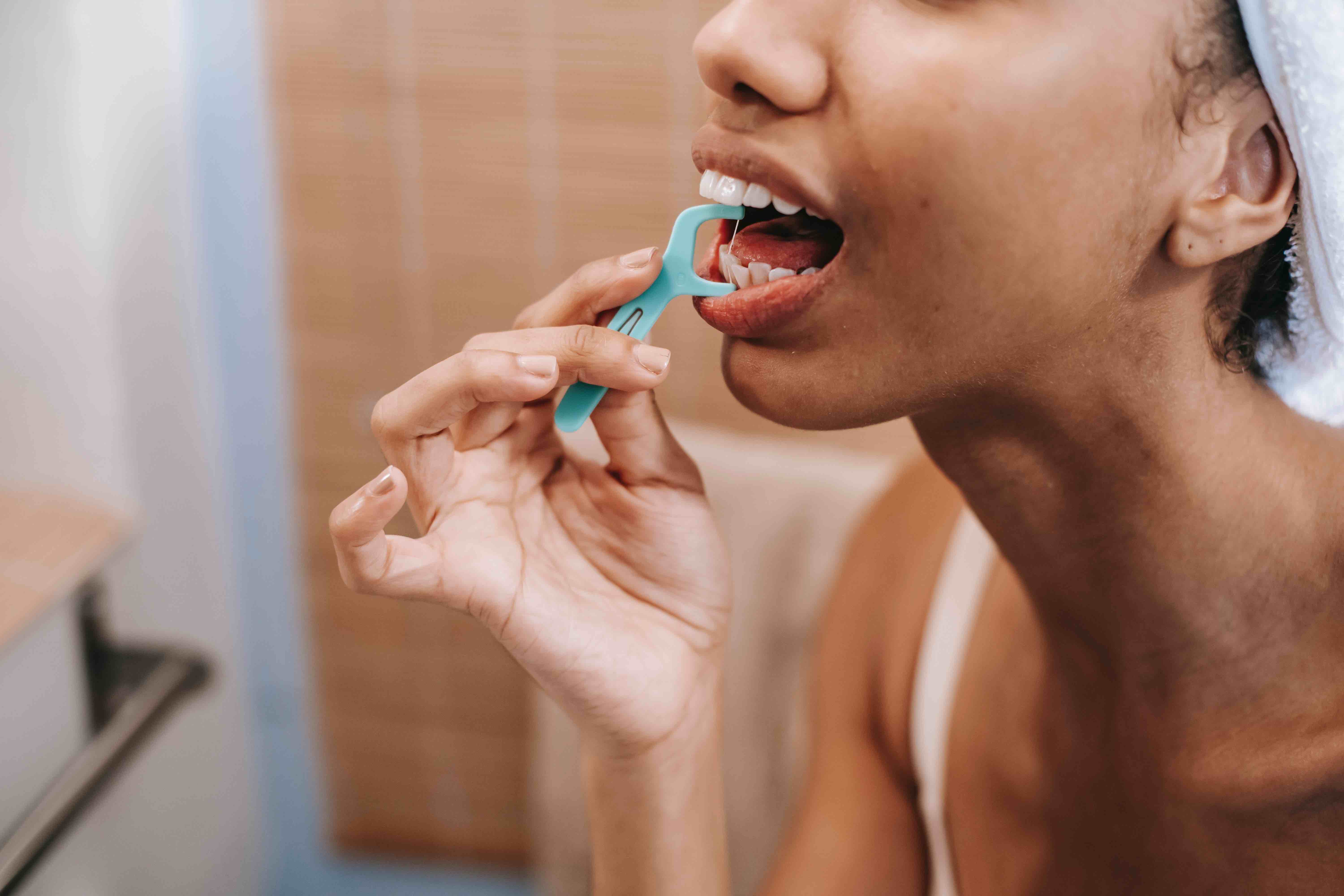Should I floss before or after brushing?

Flossing may seem an ordinary chore, but this habit is crucial in keeping your smile radiant and healthy.
The teeth and gums are exposed to heavy work daily. And debris can accumulate quickly without daily brushing or flossing.
Why daily flossing is essential
Flossing ensures there's no deposit left on spaces the toothbrush cannot reach. It does the job that the latter cannot.
Flossing also reduces your risk of developing gum disease. It keeps your smile free from stains and your breath smelling fresh.
You might be asking if it’s better to floss before or after brushing your teeth since the purpose is to remove debris in tight spaces between teeth.
Which should come first: Flossing or brushing?
You probably don’t give it much thought, but the order matters. And it’s better to floss before you brush.
When you floss, you dislodge deposits between teeth and along the gumline. You make it easier for your brush to catch and remove them. If you floss after brushing, those deposits will remain and stick to your teeth and gums.
After brushing is when you rinse with plain water, which makes an ideal ending to cleaning your mouth.
If you do it in the right sequence - flossing, brushing, and rinsing - you get a more effective clean and fresher smelling breath.
According to a study, this sequence also removes more plaque effectively than the opposite order. The teeth can also benefit more from the fluoride in toothpaste if debris is removed before brushing.
Will rinsing wash away fluoride from the teeth?
There’s a reason why you hear your child’s dentist advise not to brush your teeth for a few hours after fluoride is applied.
It allows the fluoride to linger on and adds a layer of protection to the enamel. The same goes when using fluoride toothpaste.
Avoid rinsing your mouth vigorously with water to allow the fluoride to settle in. You can still rinse your mouth but take it easy to keep fluoride on teeth surfaces.
Which is the best type of dental floss?
Talk to your dentist for recommendations on the best type of dental floss, especially if you or a loved one has special needs.
In general, the best type is what you’re most comfortable using. If you’re struggling with the traditional floss thread, you can use a dental floss pick instead.
So, should I floss before or after brushing?
The answer is to floss before brushing. And be consistent with the habit. It prevents discolouration of teeth, reduces your risk of gum disease, eliminates bad breath, and provides you with a lifetime of confident, healthy smiles.